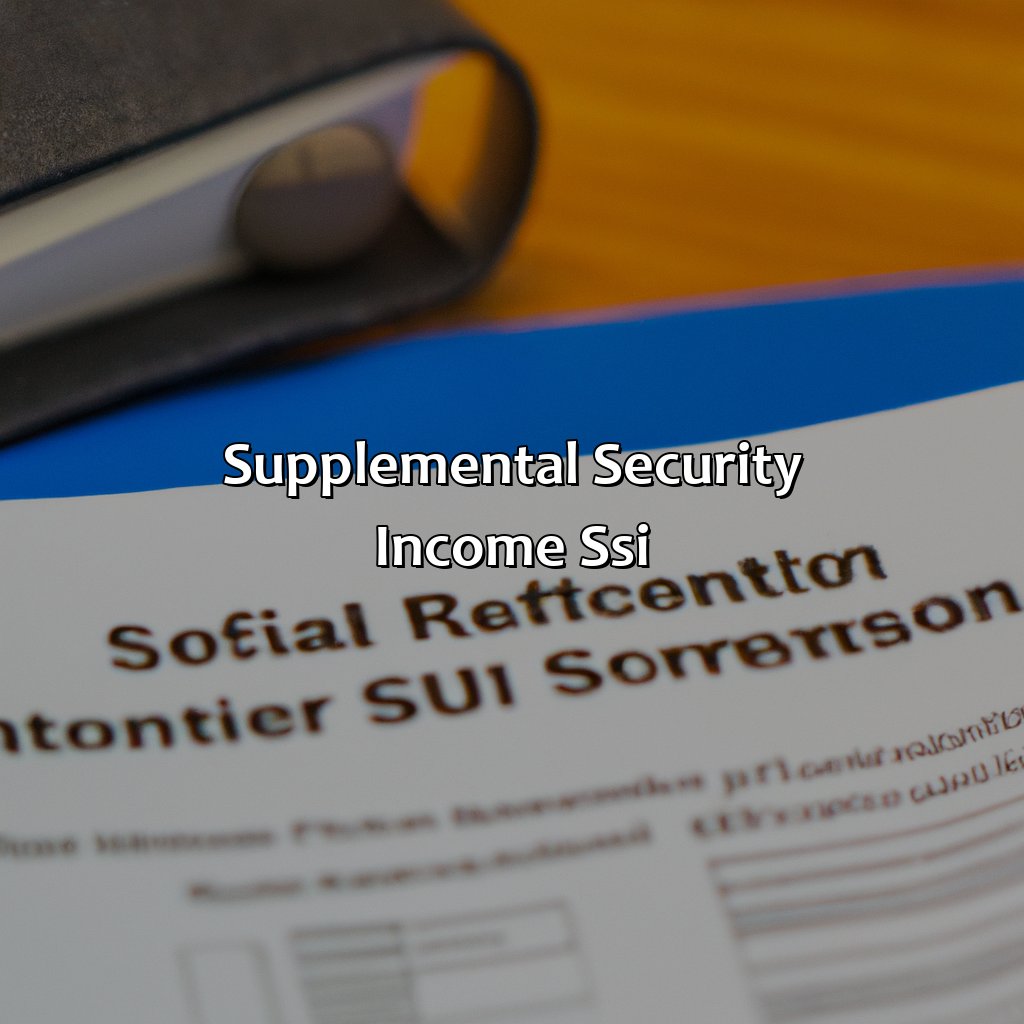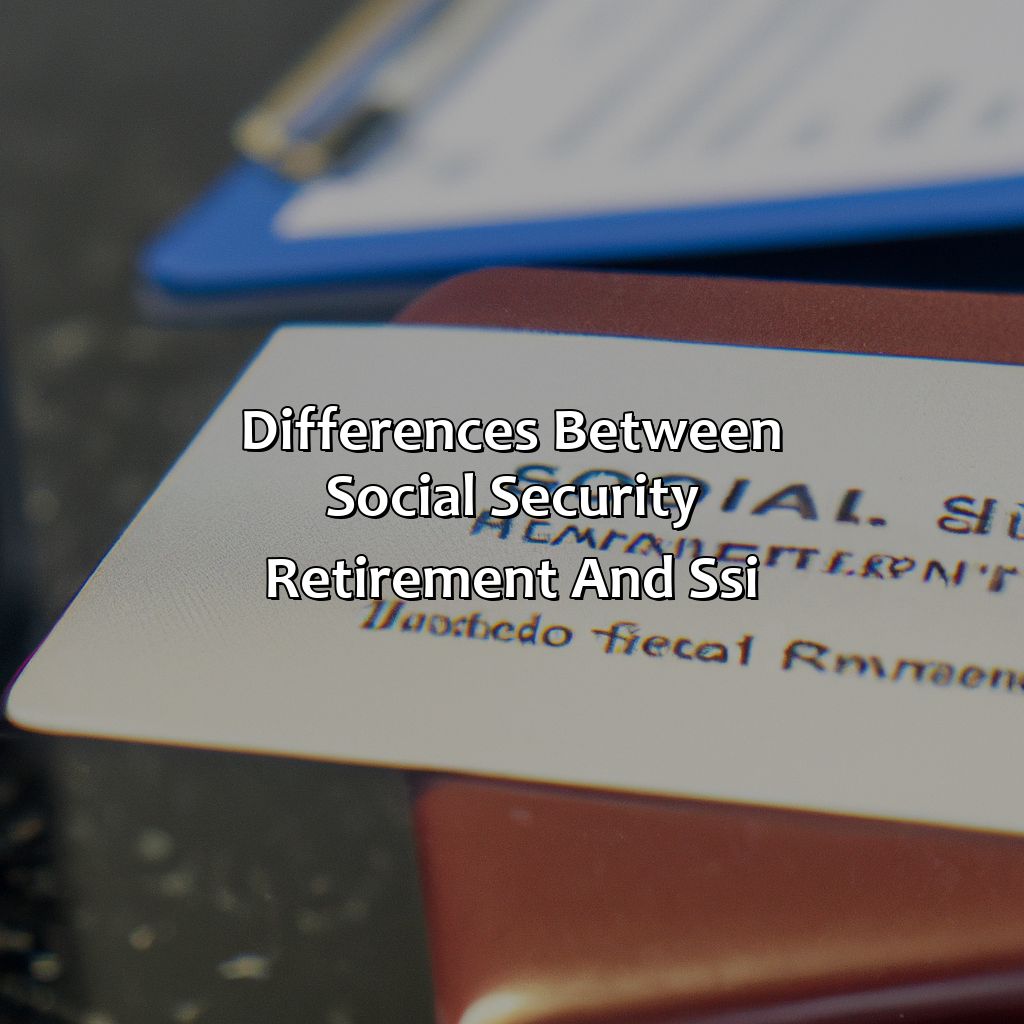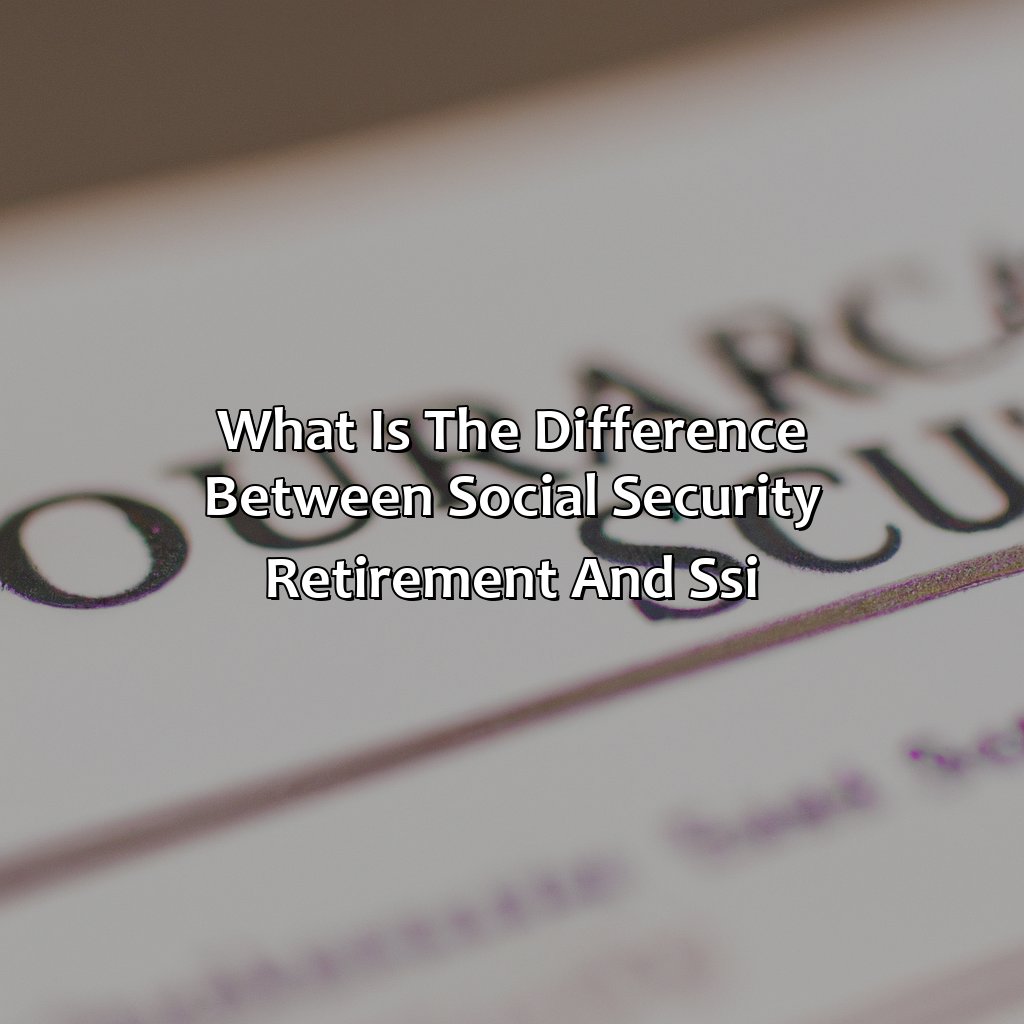What Is The Difference Between Social Security Retirement And Ssi?
Key Takeaway:
- Social security retirement and SSI are two separate programs with their own eligibility requirements that provide benefits for retirees and disabled individuals, respectively.
- Social Security Retirement benefits are based on your lifetime earnings record, while SSI benefits are determined by financial need, including income and assets.
- The differences between these programs include eligibility criteria, benefit amounts and payment frequency, assets and income limitations, and the purpose of the benefits.
Do you know the difference between Social Security Retirement and Supplemental Security Income (SSI)? In this article, we explain what sets them apart so you know which one best meets your needs. With the right understanding, you can maximize your Social Security benefits.
Social Security Retirement
Social Security Retirement is a federal program designed to provide retirement benefits for working individuals who have paid enough Social Security taxes. These benefits are determined based on the individual’s earnings history and the year they choose to begin receiving benefits. The program also provides benefits for survivors and individuals with disabilities.
While retirement benefits are the primary focus of Social Security Retirement, other benefits can be accessed through the program.

Image credits: retiregenz.com by David Arnold
Supplemental Security Income (SSI)
Supplemental Security Income (SSI) is a means-tested program that provides financial assistance to individuals with limited income and resources who are disabled, blind, or 65 years of age or older. This program is different from Social Security Retirement because it provides benefits to individuals who have not worked or have limited work history, whereas Social Security Retirement provides benefits to individuals who have paid into the Social Security system through payroll taxes. SSI benefits are also calculated based on the individual’s financial need, whereas Social Security Retirement benefits are based on the individual’s earnings history. It is important to note that individuals who receive SSI may also be eligible for Medicaid.
In contrast to Social Security Retirement, SSI provides financial assistance to low-income individuals who are in need of basic necessities. The SSI program was designed to prevent poverty and offer financial support to those who may not have access to other sources of income. SSI benefits may be used to cover essential living expenses, such as food, shelter, and medical attention. While SSI benefits are not intended to fully cover all expenses, they are meant to help alleviate some of the financial strain on eligible individuals.
It is important to note that SSI benefits are subject to strict resource and income limitations, which can vary by state. The SSI program also has strict eligibility requirements, such as residency and citizenship status, and applicants may need to provide detailed information about their financial situation and medical history.
One real-life example of the SSI program’s impact is a single mother with a disability who was struggling to make ends meet due to her limited income. She was able to receive SSI benefits, which helped her pay for basic necessities such as food and housing. Without this financial assistance, she would have struggled even more to provide for her and her children’s basic needs.

Image credits: retiregenz.com by Joel Jones
Differences between Social Security Retirement and SSI
Social Security Retirement and SSI are two different benefits provided by the United States government. Here’s how they differ:
| Social Security Retirement | SSI |
|---|---|
| Based on age, work history, and contributions | Based on financial need and disability |
| Eligibility age ranges from 62-70 years old | No age limit for eligibility |
| Monthly payment amount is based on work history | Monthly payment amount set by the state |
| No asset or income limits | Asset and income limits apply |
| Eligible for Medicare at age 65 | Eligible for Medicaid from day one |
| Benefits are not taxable | Benefits may be taxable |
| Spouses and children may be eligible for benefits | Spouses and children may be eligible for benefits |
It’s important to note that SSI is a need-based program, while Social Security Retirement is based on an individual’s work history and contributions. Additionally, SSI has income and asset limits, while Social Security Retirement does not. Finally, SSI recipients are eligible for Medicaid from day one, while Social Security Retirement recipients are eligible for Medicare at age 65.
If you are eligible for both benefits, it’s important to understand how they may affect each other. For example, if you receive both Social Security Retirement and SSI, your Social Security Retirement benefits may reduce your SSI payment amount. To maximize your benefits, it’s important to plan carefully and avoid making any mistakes when applying for them. Consult with a professional to understand your options and how to navigate these complex benefits.

Image credits: retiregenz.com by Adam Jones
Five Facts about the Difference Between Social Security Retirement and SSI:
Social Security Retirement is available to individuals who have paid into the Social Security system for a certain number of years, while SSI is a needs-based program for individuals with limited income and resources. (Source: Social Security Administration)
Social Security Retirement benefits are based on an individual’s earnings history, while SSI benefits are set by federal law and are the same across the country. (Source: AARP)
Social Security Retirement benefits are not affected by other income or assets, while SSI benefits are reduced dollar-for-dollar by other income and assets. (Source: Social Security Administration)
Social Security Retirement benefits can begin as early as age 62, while SSI benefits are only available to individuals who are at least 65 years old, blind, or disabled. (Source: AARP)
Social Security Retirement benefits can be paid to spouses and dependents, while SSI benefits are only available to eligible individuals. (Source: Social Security Administration)
FAQs about What Is The Difference Between Social Security Retirement And Ssi?
What is the difference between Social Security retirement and SSI?
Social Security retirement benefits are available to anyone who has paid into the Social Security system through payroll taxes during their working years. On the other hand, SSI (Supplemental Security Income) is a needs-based program for those who have low income and limited resources, regardless of their work history.
Do I have to choose between Social Security retirement and SSI?
No, you may be eligible for both. In fact, if you receive SSI it’s likely that you will also receive Social Security retirement benefits. However, the total amount you receive from both programs cannot exceed a certain threshold amount.
How do I qualify for Social Security retirement benefits?
To qualify for Social Security retirement benefits, you generally need to have worked and paid into the Social Security system for at least 10 years (40 quarters). The amount of your benefit is based on your average earnings over your highest 35 years of work.
How do I qualify for SSI?
To qualify for SSI, you must have limited income and resources (less than $2,000 for an individual or $3,000 for a couple) and also meet certain disability and age requirements.
Are Social Security retirement benefits and SSI payments taxed?
Yes, both Social Security retirement benefits and SSI payments can be subject to federal income taxes, depending on your total income. However, most states do not tax Social Security income or SSI payments.
Can I apply for Social Security retirement benefits and SSI at the same time?
Yes, you can apply for both programs at the same time. However, the application process may be different and you may need to provide different information and documentation for each program.
 Checkout this IRS Loophole
Checkout this IRS Loophole 





